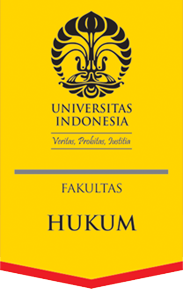DOI
10.21143/jhp.vol49.no2.2009
Abstract
It has been recognised that Multinational Corporation has played important role in international law particularly on economic matters and recently on human rights. Hence, the question is how international law views this entity: is it a subject or object of international law? What kind of modalities and limitations for MNC to operate in international law? Do they have some capacities for law making treaty? This article attempts to answer those questions critically by Public International Law as a point of departure. It is argued here that different theories used lead to different conclusion on the position of multinational corporation in International Law. Nevertheless, such differences will not delete the fact that this entity has certain rights and obligations in International Law.
Bahasa Abstract
Tidak dapat dipungkiri bahwa korporasi multinasional merupakan aktor dalam hukum internasional terutama dalam hal perekonomian dan akhir-akhir ini berkaitan dengan hak asasi manusia. Pertanyannya adalah bagaimana hukum internasional memandang entitas ini: Apakah korporasi multinasional itu merupakan objek atau subjek hukum internasional? Apakah korporasi ini mempunyai modalitas dan pembatasan untuk beroperasi di dalam konteks hukum internasional? Apakah mereka mempunyai kapasitas untuk terlibat dalam pembuatan perjanjian? Artikel ini mencoba menjawab pertanyaan-pertanyaan tersebut secara kritis dengan menggunakan pendekatan yang berlaku dalam Hukum Internasional Publik. Artikel ini berasumsi bahwa perbedaan teori yang berlaku dalam hukum international publik akan mempengaruhi cara pandang dan temuan mengenai posisi korporasi multinasional. Namun, perbedaan tersebut tidak mengubah fakta bahwa korporasi mempunyai hak dan kewajiban tertentu dalam hukum internasional.
References
International Instruments Communication No. 455/1991 (UN Doc. CCPR/C/51/D/445/1991, reprinted in 1995, Vol. 2 (1) IHRR, p. 148 and para. 11.2. Convention on Combating Bribery of Foreign Public Officials in International Business Transactions, OECD Draft Norms on the Responsibility of Transnational Corporations and Others Business Enterprises with Regard to Human Rights, U.N. E/CN.4/Sub.2/2003/12 (2003). European Convention on Human Rights European Criminal Law Convention on Corruption (ETS No. 173) Geneva Conventions I to IV, Protocol Additional to the Geneva Conventions. Global Convention on the Control of Transboundary Movements of Hazardous Wastes, Bawel, 1989. Guidelines for Multinational Enterprises adopted in 1976 by the Organization for Economic Cooperation and Development (OECD) 396 Jurnal Hukum & Pembangunan Tahun ke-49 No.2 April-Juni 2019 ILO Tripartite Declaration of Principles concerning Multinational Enterprises and Social Responsibility adopted by the Governing Body of the International Labour Office at its 204th Session (Geneva, November 1977), as amended at its 279th Session (Geneva, November 2000). Books Cassese, International law (New York : Oxford Univerity Press, 2001). Clapham Andrew, Human Rights in Private Sphere (Oxford: Clarendon Press, 1999). Andrew Clapham, The Question of Jurisdiction Under International Criminal Law Over Legal Persons: Lessons from the Rome Conference on an International Criminal Court, in M.T. Kamminga and S.Zia-Zarifi (eds), Liability of Multinational Corporations Under International law, (Netherland: Kluwer Law International,2000), Fisher, “Transnational Enterprises” in Encyclopaedia of Public International law, 8 (North-Holland, Amsterdam etc, 1985) Higgins, Rosalyn, Problems and Process: International law and How We Use It (Oxford, Clarendon Press, 1994). Jennings, Sir Robert and Sir Arthur Watts, Oppenhim's International law, 9th ed. (Essex: Longman, 1992). Jägers, Nicola, "The Legal Status of the Multinational Corporation Under International law," in Human Rights Standards and the Responsibility of Transnational Corporations, ed. Michael K. Addo (Netherlands: Kluwer Law International 1999). Klabbers, The concept of Treaty in International law, Haque: Kluwer, 1998. Lassa Oppenheim and Lauterpacht. International law: A Treatise, eighth edition. (London: Longman, 1955). Malcolm N. Shaw, International law, 4th ed., (Cambridge: Cambridge Distribution, 1997). McCorquodale, Robert "The Individual and the International Legal System," in International law, ed. Malcolm D. Evans (Oxford: Oxford University Press, 2006) Nørgaard Carl Aage, The Position of the Individual in International law (Copenhagen: Munksgaard, 1962) Peter Malanczuk, Akehurst’s Modern Introducation to International law (London: Routledge, 1997). Waagstein Patricia Rinwigati, Corporate Human Rights Responsibility: Continuous Search for A Regulatory Framework (Uppsala: Uppsala University, 2009) Cassese, International law (New York : Oxford Univerity Press, 2001). Journal Christopher Greenwood, The Libyan Oil Arbitrations, 53 BYIL (1983). Durbin & Mark Vallianator, ‘Transnational Corporate Bill of Rights – Negotiations for a Multinational Agreement on Investment (MAI)*, Friends of the Earth US, April 1997. Manner, George, "The Object Theory of the Individual in International law," American Journal of International law 46 (1952). Ochoa, Christina, "The Individual and Customary International law Formation," Virginia Journal of International law 48, no. 1 (March 2007). Wiessner and Andrew R. Willard, ‘Policy-Oriented Jurisprudence and Human Rights Abuses in International Conflict: Toward a World Public Order of Human Dignity’, 93 AJIL (1999).
Recommended Citation
Rinwigati, Patricia
(2019)
"THE LEGAL POSITION OF MULTINATIONAL CORPORATION IN INTERNATIONAL LAW,"
Jurnal Hukum & Pembangunan: Vol. 49:
No.
2, Article 10.
DOI: 10.21143/jhp.vol49.no2.2009
Available at:
https://scholarhub.ui.ac.id/jhp/vol49/iss2/10

